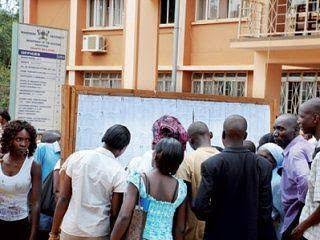Do Direct Entry Students Do Matriculation In Nigeria?
Understanding the admission processes in Nigeria can be challenging, especially for those seeking access through the Direct Entry (DE) route. One common question that arises concerns the need for matriculation ceremonies for DE students. This article clarifies the procedures, dispelling confusion and providing factual information for aspiring undergraduates.
Eligibility for Direct Entry
The Joint Admissions and Matriculation Board (JAMB) establishes the criteria for DE eligibility. Applicants must possess qualifications deemed equivalent to the first year of a desired degree program.
These qualifications include Higher National Diplomas (HNDs), Advanced National Business and Technical Education Board (NABTEB) Advanced National Certificates, and Ordinary National Diplomas (ONDs) with upper credit passes in relevant subjects. Additionally, certain professional certifications granted by recognized bodies may qualify.
Matriculation and Direct Entry: l
A crucial point to address is the misconception that DE students bypass matriculation ceremonies altogether.
This is not the case. While the process differs from that of Unified Tertiary Matriculation Examination (UTME) entrants, DE students do participate in matriculation, marking their formal admission into the university community.
The DE Matriculation Process
Specific procedures for DE matriculation may vary slightly between universities. However, the general framework remains consistent. Upon meeting the DE requirements, successful applicants proceed with online registration, providing necessary documentation and completing any required verification processes. After confirmation of eligibility,universities schedule separate matriculation ceremonies for DE students, typically held later than those for UTME entrants.
Understanding the Rationale
The distinction in timing stems from logistical considerations. UTME results release and admission processing for those candidates follow a predefined timeline. DE applications, with their diverse qualification pathways, require additional verification and processing, taking more time.
Therefore, separate matriculation ceremonies ensure DE students are included in the official welcome rites without undue delay.
Participation in the matriculation ceremony signifies more than just a procedural formality. It marks the official commencement of an individual’s academic journey within the university system.
DE students, despite entering at a later stage, are fully entitled to all resources and opportunities available to their UTME counterparts. They become integral members of the student body, actively participating in academic pursuits, extracurricular activities, and campus life.
Frequently Asked Questions:
Do DE students have a separate matriculation oath?
No, DE students take the same matriculation oath as UTME entrants, pledging commitment to academic integrity and upholding university regulations.
Is attendance at the DE matriculation ceremony mandatory?
While strongly encouraged, attendance is not always strictly mandatory. However, universities may impose consequences for non-attendance, such as delays in processing official documents.
Can DE students participate in UTME matriculation ceremonies?
No, participation is restricted to students admitted through the specific process they entered. Attending the wrong ceremony may lead to confusion and inconvenience.
Do DE students receive matriculation gowns?
Yes, DE students typically receive gowns, sashes, and other ceremonial attire similar to UTME entrants, highlighting their equal standing within the student body.








